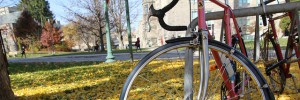
Grant Writing is an Art
“There is no grantsmanship that will turn a bad idea into a good one, but there are many ways to disguise a good one.” – Dr. William Raub, Former Deputy Director, NIH
Grant Writing Tips
- The research question must be worth asking. Is the question relevant and original?
- Know the granting agency. Do they fund projects in your area? Target the proposal to the agency’s objectives or to the particular call for proposals.
- Learn about the review committee. What kind of expertise is represented? Assume that the reviewers are in a somewhat related field, not an expert directly in the area of the proposal, and write the grant accordingly.
- Learn from others. Examine successful grants in your area.
- Start early. Allow plenty of time for writing, gathering signatures, obtaining CVs of co-applicants, and rewriting.
- Support the proposal with strong preliminary data. Show that your plan is feasible.
- Follow granting agency instructions exactly.
- Write for the reviewers. Your grant should be clear, to the point and enjoyable to read.
- Have a colleague(s) review your document for the science. (Internal Peer Review)
- Have a “lay reader” proofread your document for understandability, spelling, grammar and to ensure that you have followed the agency’s instructions.
- A strong CV is important. If applicable to the granting agency, the “most significant career contributions” section is critical.
- The budget should be realistic and well-documented. Pay close attention to the budget justification.
Documents, Books and Websites Offering Grant Writing Tips:
- Information on this Blog
- Researcher Toolbox – Western Human Resources: This website is designed to help researchers navigate Human Resources processes related to hiring/appointing research staff and budgeting for grant applications.
- The Art of Grantsmanship by Jacob Kraicer
- Grant Writing Resources (a collection of resources including help with Foundations – Schulich School of Medicine & Dentistry, Western University)
- Survival Guide (Ontario Arts Council)
- Western Research – Proposal Preparation
- Guide for Proposal Writing (National Science Foundation)
- Guide for Writing a Funding Proposal – S. J. Levine
- Elements of Style (William Strunk Jr.) (from Bartleby.com)
- CIHR – Guidebook for New Principal Investigators
- The Art of Writing a CIHR Application: CIHR’s tips and insights for planning stages through writing and finalization.
- NSERC’s Peer Review Manual
- Tips on applying for an NSERC Discovery Grant: a 20 minute video (transcript also available) featuring interviews with members of the Evaluation Groups that review applications.
- Social Science Research Council (U.S.)- On the Art of Writing Proposals
- Best practices for grant writers: 10 tips to improve your grant writing skills (University Affairs, June 9, 2008).
- Tips for Preparing a Successful Proposal offers general advice compiled by University of Waterloo’s Office of Research.
- Grant Writing Resources 2019 -Jaeger and Klassen
- The Grant Writing Recipe – from Imagine Canada
-
Top ten strategies to enhance grant-writing success – Guyer RA, Schwarze ML, Gosain A, Maggard-Gibbons M, Keswani SG, Goldstein AM.
-
Walters, M. W. (2009) Write an Effective Funding Application. Baltimore, Md.: The Johns Hopkins University Press.(Available at the Business Library, Western – Call Number HG177.W35 2009)
- Smith, N.B., Works, E. G. (2006) The Complete Book of Grant Writing: Learn to Write Grants like a Professional. Naperville, Ill.: Sourcebooks. (Available at Western Libraries: Call Number HG177.S63 2006)
- More grant writing tips / advice / resources – for budgets, particular sections of applications is available on the secure OWL site for FIMS, Law and DWFoM researchers
And….What not to do:
- 10 Common Grant-Writing Mistakes: Jude P. Mikal and Gina Rumore offer some great advice on what not to do when writing up your grant application (Chronicle of Higher Education, Jan 2018).
- How to Fail in Grant Writing : the advice offered by Elizabeth Jakob et al is both entertaining and, although written in 2010, timeless (Chronicle of Higher Education, Dec 5, 2010).
“If you don’t apply, you won’t get funded.”
For a review of your draft application, to arrange for a peer review, or if you have questions contact:
Chantal Lemire (she/her)
Research Officer
e: clemire2@uwo.ca
p: (519) 661-2111 x85383
photo credit: a story about time and the art of liquid painting, scott richard via photopin (license)

